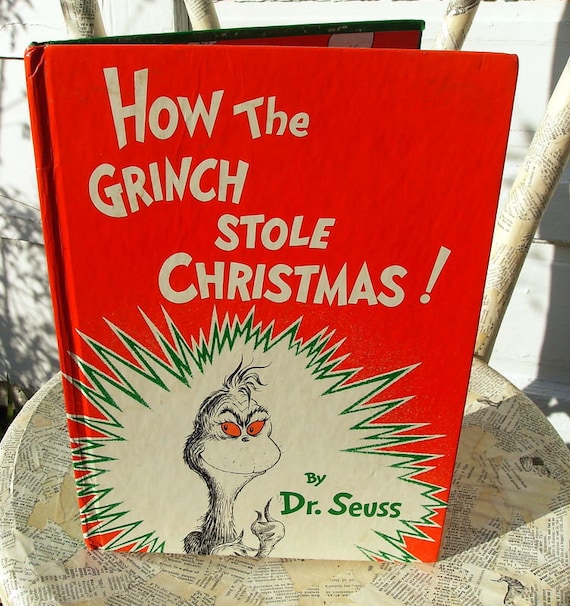Yeah, so he wasn't really a doctor. Most people know that already. Theodor Geisel, the soon-to-be Dr. Seuss, went to Dartmouth, where he edited their Jack-O-Lantern humor magazine until he got booted from the editorial staff for his role in a very illegal drinking party (it was during Prohibition, after all). He did continue to submit work to the magazine, though, and he signed it "Seuss" (his middle name). Afterward, he went to Oxford, dropped out, traveled a bit, got married, and finally settled into a career as a cartoonist for Judge and The Saturday Evening Post.
| Life Magazine:May 1934; from webdesignerdepot.com |
One of his cartoons for Judge caught the right person's eye, and he spent seventeen years doing ad campaigns for Standard Oil (and a few other companies, including Ford, General Electric, and Schaefer). As it was the Great Depression, this steady work provided crucial financial support as he started to write and illustrate his own material.
 |
| http://libraries.ucsd.edu/speccoll/dsads/# |
| http://libraries.ucsd.edu/speccoll/dsads/#intro |
Although he had made a career off of cartoons for various magazines (adding LIFE and Vanity Fair to the list), his first "literary" break came when Viking Press commissioned his illustrations for a book of funny sayings called The Pocket Book of Boners in 1931. I own a later hardback copy, but here's a picture of the earlier paperback version:
| www.mentalfloss.com |
In 1937, he published And to Think That I Saw It on Mulberry Street (after twenty-seven rejections). A first edition with dust jacket now ranges from $8,000 to $12,000, depending on condition. He followed this success with The 500 Hats of Bartholomew Cubbins in 1938 ($6,000-$9,000), and The Seven Lady Godivas in 1939 (they're naked!).
| mirrormaskcamera.tumblr.com |
Although he was too old to be drafted, he made his own WWII contribution by writing military training movies for Frank Capra's Signal Corps, featuring Private Snafu as a recurring character. You might notice some similarities between the Snafu films and some certain other very famous cartoons, and the reason is simple: they were a secret project done by Warner Brothers for the War Department. (Actually, the job was first offered to Disney, who wanted too much money.) This put Seuss together with some of the great Warner Directors, including Chuck Jones and Friz Freleng. And who provided the oh-so-familiar voice for Private Snafu and his fellow soldiers? Mel Blanc. I can't even get into how excited that makes me--Mel Blanc, Chuck Jones, and Dr. Seuss in the same room. Here's Private Snafu in the Aleutians (but there's also a great one called Booby Traps that runs about 5 minutes--check it out on YouTube if you get a chance):
His two most famous works, The Cat in the Hat and How the Grinch Stole Christmas both came out in 1957. But there are some lesser-known works that are just as fabulous: Thidwick, the Big-Hearted Moose (1948), On Beyond Zebra (1955), and Did I Ever Tell You How Lucky You Are? (1973) . Overall, more than sixty titles bear his name. I was shocked to learn that he had another pseudonym (Theo LeSieg), under which he published books that he wrote, but did not illustrate. Some of these were on my favorites list as a child, and I didn't even know they were his! The Tooth Book changed my life, people.
Dr. Seuss has always been in my world. My preschool class had a Green Eggs and Ham party, and I was so excited I nearly peed. I always loved the fact that my mother could recite Fox in Socks rhymes, fast, without getting tongue tied. Horton heard that Who at least once a week during a particular summer of my childhood.
And now we brag on the great Dr. Seuss:
Academy Awards........2
Pulitzer Prizes.............1
Emmy Awards............2
Peabody Awards.........1
Books sold..................200,000,000+
People who are more creative, smarter, wittier, kinder, and/or funnier because they read his books.......probably billions.
 |
| In our etsy shop: https://www.etsy.com/listing/87913830/how-the-grinch-stole-christmas-drseuss?ga_search_query=grinch |
* Information obtained from http://www.catinthehat.org/history.htm, http://1stedition.net/drseuss.html, www.wikipedia.com




